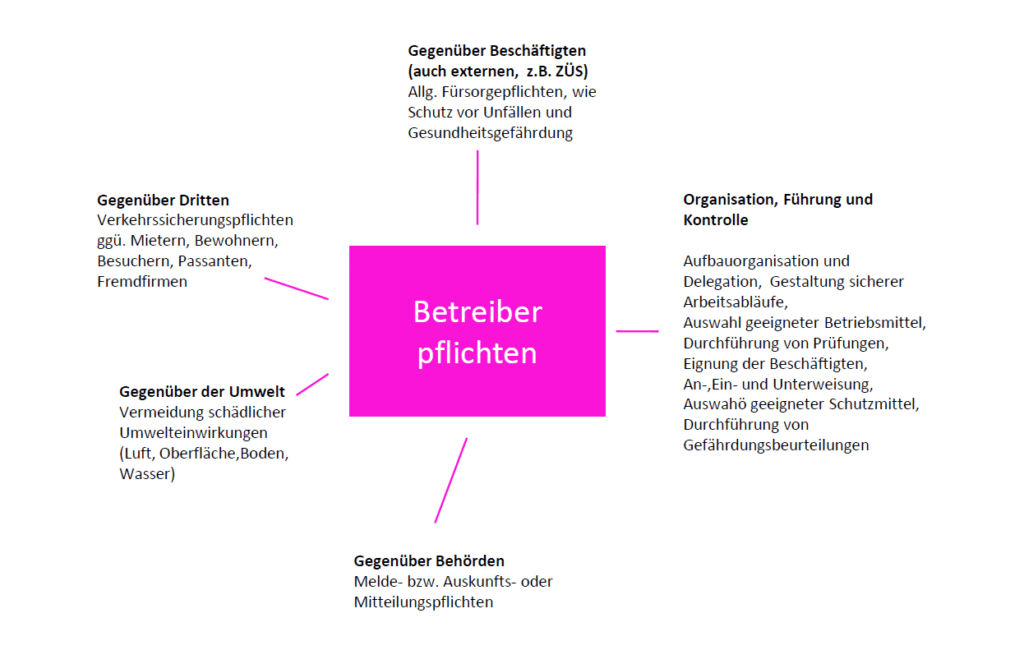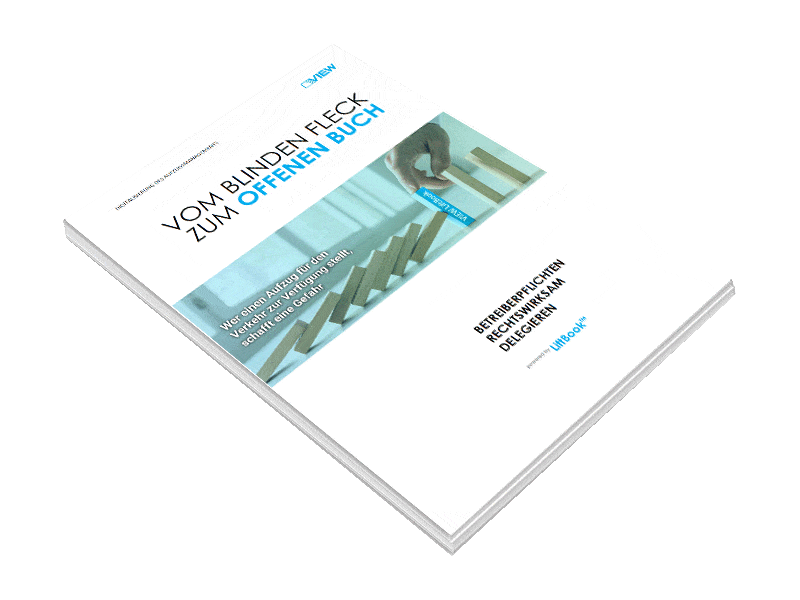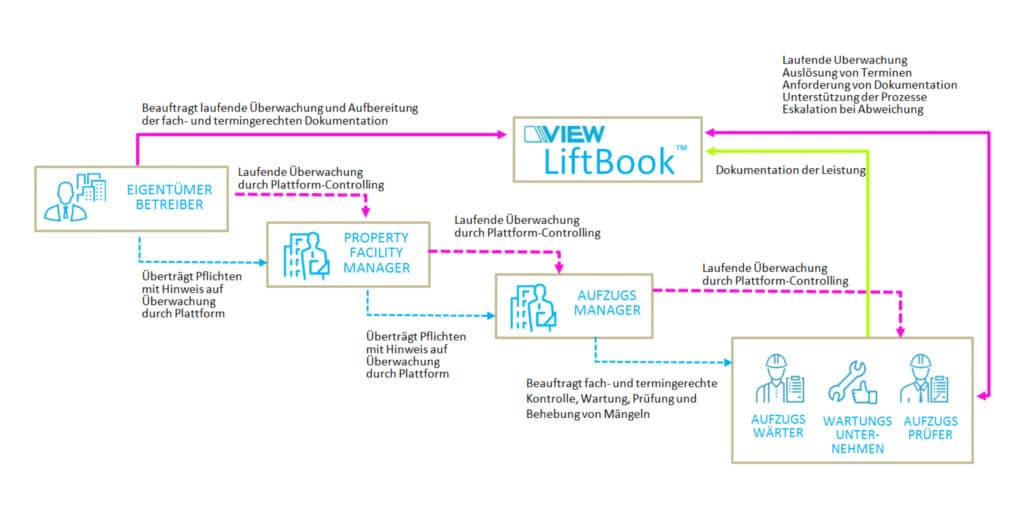The operational control of the elevator is essential
How secure are you against strict liability claims?
Due to the operator’s obligations, not only company employers, but also the owners of residential buildings, such as real estate companies or private landlords, are responsible in the event of liability damage. Especially when there is a lack of in-house expertise, operators are more dependent than ever on reliable (!) and high-quality service companies.
Please keep in mind that you can also be liable to a delegation if, for example, he does not adequately control the company he has commissioned.
How safely are the prescribed operational controls carried out?
As the operator of an emergency call center, we know that many operational controls do not at least include the regular control calls from the cabin.
Long-term observations show that around 67% of the systems do not receive the required controls.
Every time the lift attendant visits the facility, it is mandatory to trigger an emergency call to check the emergency call communication. This test point is so important that the elevator may not be operated at all without a functioning emergency call system. That is a point that we can measure. But what about all the other test points on the elevator system?
Overview of the operator’s obligations

Delegation of the elevator operational control: what do you need to know about it?
The delegation belongs to the internal organization of the operator. The delegation can take place over several levels.
From the owner to the operator, to the property manager, from the property manager to the elevator manager, and from the elevator manager to the elevator attendant and the maintenance company.
It is important to note: that with the delegation only the implementation obligation is given. Management responsibility always remains with the operator. This makes it clear why it is not enough, for example, to have a FULL MAINTENANCE CONTRACT.
There is no complete exemption from operator responsibility.
In order to delegate operator duties in a legally secure manner, the 6 basic rules of delegation must be observed.
In the first step, the obligations that are to be transferred must be clearly defined.
Second, there must be no overlaps or gaps in the distribution of duties.
Thirdly, when choosing a service provider, careful attention must be paid to the required qualifications
Fourth, it is important to equip the obligated party with all necessary means and powers
Fifth, attention must be paid to the corresponding instruction / instruction / and instruction of the persons obliged and, last but not least, appropriate supervision and monitoring must be ensured.
Please note that the non-observance of a single point can lead to the TOTAL transfer of duties being regarded as ineffective.
As the operator, how do you monitor the reliability of your vicarious agents?
Of course you check the logs of the operational controls and you know: “Paper is patient”.
But how do you know, if around 67% of the emergency call systems are not properly controlled, that the inspection actually took place? How do you know that not all protocols were “correct” but filled out from home without the lift attendant being at the facility? As patient as paper may be, you as the operator / property manager / elevator manager cannot afford this serenity.

You can find more about operator liability and digital elevator management with LIFTBOOK in our whitepapers: here
It becomes uncomfortable if such a lack of delegation is only known when the accusation of a culpable breach of duty is known.
If the operator has to provide a justification to DEFEND an accusation, this will only be possible if PROOF of all prescribed obligations can be provided. This includes – depending on the use of the building – observing the CARE REQUIRED IN TRAFFIC.
Furthermore, proof that all POSSIBLE and REASONABLE MEASURES have been taken and proof that the DAMAGE WOULD HAVE OCCURRED WITHOUT. How can this proof be achieved?
The answer is: DOCUMENTATION, DOCUMENTATION, DOCUMENTATION …
Seen in this way, the documentation requirement is not just a burden. It gives you a clear conscience. The documentation is the BASIS of the DELEGATION.
